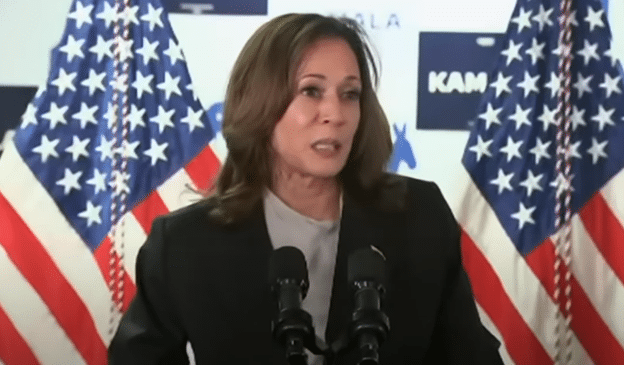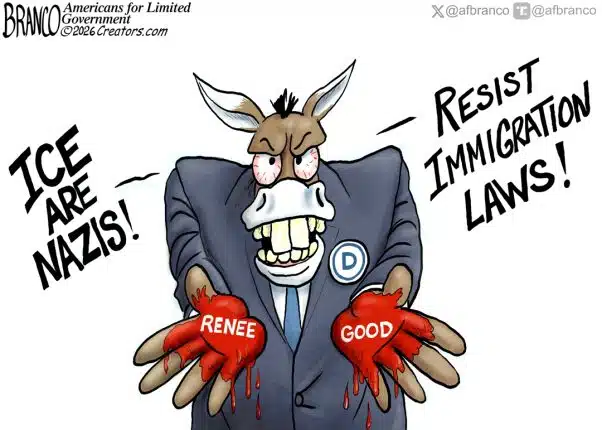
In the midst of President Donald Trump brokering a tenuous ceasefire between Israel and Iran which he has urged both nations to honor, another political battle is unfolding here at home as Democrat voters call for completely new leadership in their party.
A growing faction of Democrats and political analysts are beginning to recognize and reluctantly admit that they lost the 2024 election due to their abandonment of the middle-class and elevation of a radical left-wing agenda that very few Americans stand behind.
Polling shows tolerance for the modern Democratic Party is running thin, and the party must be transformed into a more economically responsive body or be replaced entirely.
A large 4,200-people Reuters/Ipsos poll released June 19 reveals a startling lack of support for the modern Democratic Party’s progressive social agenda, with Democrat voters asserting by a 38-point margin — 62 percent to 24 percent — that the party should replace Democrat leaders with new leaders. This stands in stark contrast to Republican voters — just 30 percent of Republican voters say they want their party leadership to be replaced.
The poll also unearthed a deep divide between the issues Democrat voters want their party leaders to focus on — which include a slate of economic and social safety net measures — and the fringe social issues they say Democrat elected officials are focused on.
Voters are growing weary of the Democratic Party’s focus on radical gender issues while neglecting issues they deem more important such as paid family leave, affordable childcare, and lower Medicaid drug prices, according to the survey.
While a mere 17 percent of Democrat voters say allowing transgender people to compete in women and girls’ sports is a priority for them, 28 percent say their party leaders are too heavily focused on the issue.
On the flipside, there is an 18-point gap in what Democrat voters want in terms of paid family leave and how voters think Democrat leaders are prioritizing the issue. 80 percent of Democrats say family leave is a priority to them but only 63 percent say the party is focused on that issue.
There is also a 17-point gap in what Democrat voters want when it comes to lower childcare costs and how voters think Democrat leaders are prioritizing that issue. 73 percent of Democrat voters say lower childcare costs are important to them while but just 55 percent say party leaders are focused on that issue.
On prescription drug costs, 74 percent of Democrat voters say they want Democrat leaders to focus on lowering drug costs, but only 61 percent say Democrats are focused on the issue, a 13-point gap.
Then there is the perception that the Democratic Party does not respect and value working Americans. This spring, an alarming poll from Democratic-leaning research group Navigator Research quietly exposed just how much the party’s support among middle-class voters has shrunk due to a mismatch in priorities.
The poll, which surveyed voters across 62 competitive House districts, exposed how voters said by 14 points — 56 percent to 42 percent — that the Democratic Party is not looking out for working people. Less than half of voters — 44 percent — believe the Democratic Party “respects work”. Even less — just 39 percent — say the party “values work”.
Thought leaders are beginning to recognize the modern Democratic Party’s inability to match voter needs. David Brooks, an opinion columnist at the New York Times, echoed a need for reform in a recent op-ed, pointing out that Democrats are continuing to lose on policy issues because they have distanced themselves from the middle and working classes and aren’t getting the “big moral questions” right.
“When millions of people feel that they and their values are invisible to that order, they rightly feel furious and alienated”, Brooks noted. Of course they’ll go with the guy — Trump — who says: I see you. I respect you. If Democrats, and the educated class generally, can’t change their values and cultural posture, I doubt any set of economic policies will do them any good. It is just a fact that parties on the left can’t get a hearing until they get the big moral questions right: faith, family, flag, respect for people in all social classes.”
Whether Democrats can abandon their failed social justice agenda, reform the party from within, and recoup the middle-class remains to be seen. As an alternative option to absorb disaffected Democrats, interest in a third party is rising.
A June 18th YouGov survey found a plurality of Americans — 46 percent — say a third party is “necessary” in the U.S. Only 20 percent say the Democratic and Republican parties are sufficient to represent Americans, and 34 percent aren’t sure.
Democrats — who feel disproportionately neglected and undermined by their own representatives in Congress — are likely to say a third party is needed, saying so by a 23-point margin, 47 percent to 24 percent. Republicans agree by a slim four-point margin, 35 percent to 31 percent. Independents are the keenest on a third party, saying a third party is necessary by a broad 43-point margin, 53 percent to 10 percent.
Throughout the past decade, the Democratic Party has become increasingly ideological, detached from the needs of most Americans, and devoted itself to a fringe slate of issues that very few voters stand behind.
A recent YouGov survey finds that Americans trust the Republican Party on a majority of frequently cited issues of importance, from immigration and inflation to taxes, crime, foreign policy, the Ukraine-Russia conflict, the Israeli-Palestinian conflict, and even fighting corruption.
Yet, ideological opposition to President Trump and conservatives is still strong among many Democrats. One takeaway is clear. The radical left, which just five years ago seemed to have infiltrated every aspect of media, culture, and civil society, may be nearing its end. The modern-day pressures of economic issues, an unchecked border, and foreign policy threats — and the Democratic party’s refusal to prioritize these issues over identity politics — have been the party’s downfall.
A party that once pretended to look out for the middle-class and forward issues like better childcare and healthcare for families has abandoned that pretense and turned to chastising its own people for not being woke enough no matter how much they suffer or sacrifice. This has proved to be a losing strategy. There is a lesson there — in the United States government was formed to represent the needs and desires of the people — not to dictate to them what they should believe.
Manzanita Miller is the senior political analyst at Americans for Limited Government Foundation.






